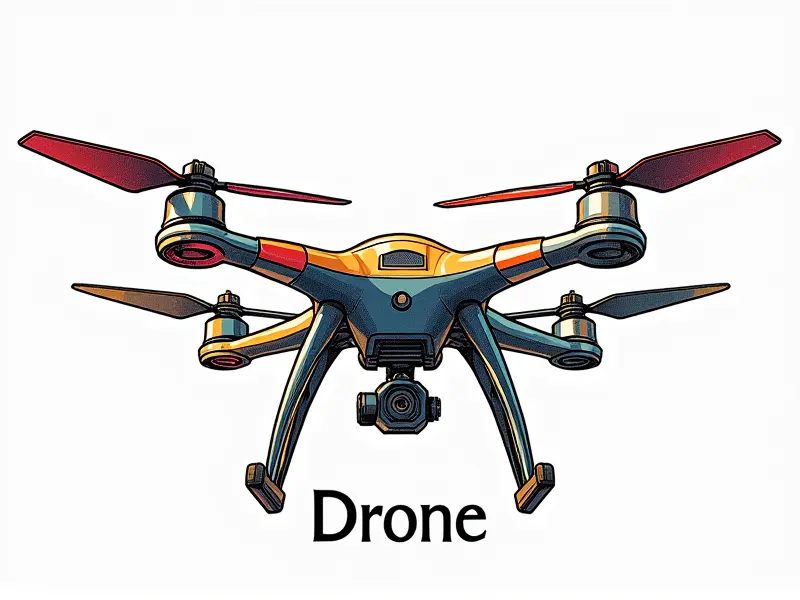Drone laws and regulations?

Drone Laws and Regulations
As the popularity of drones continues to soar, understanding the legal landscape surrounding their use is crucial. Whether you're a hobbyist or a commercial operator, navigating through the myriad of rules and regulations can be daunting. This article aims to provide a comprehensive guide to drone laws and regulations in the United States and internationally.
Understanding FAA Drone Rules & Regulations
The Federal Aviation Administration (FAA) is responsible for regulating drones within U.S. airspace. The primary goal of these rules is to ensure safety while promoting innovation and growth in the industry. Key aspects include:
- Pilot Certification: All drone operators must be certified through an FAA-approved test.
- Aircraft Registration: Drones weighing over 0.55 pounds (257 grams) and under 55 pounds (25 kilograms) must be registered with the FAA.
- Fly Within Visual Line of Sight: Operators are required to keep their drones within visual line of sight at all times, unless operating in a designated airspace or with special permission.
Commercial Drone Licensing Guide
To operate a drone commercially, you must obtain a Remote Pilot Certificate from the FAA. This involves:
- Passing an Aeronautical Knowledge Test: Demonstrating knowledge of airspace classification, weather conditions, and emergency procedures.
- Aircraft Registration: Register your drone with the FAA before flying commercially.
- Background Check: Undergo a TSA background check to ensure you are eligible for certification.
No-Fly Zones: Where Can't I Fly My Drone?
The FAA has established several no-fly zones where drones are prohibited or restricted. These include:
- National Parks and Wildlife Refuges: Drones may not be flown in national parks without a special permit.
- Airports and Airspace: A 5-mile radius around airports is off-limits to drones unless you have explicit permission from the airport authority.
- Military Installations: Drones are strictly prohibited within military bases without prior authorization.
International Drone Laws for Travelers
If you plan on flying your drone internationally, it's essential to familiarize yourself with the local regulations. Countries have varying rules regarding:
- Aircraft Registration: Some countries require foreign drones to be registered locally.
- Licensing Requirements: You may need a special license or permit to operate commercially abroad.
- No-Fly Zones: Certain areas, such as government buildings and military installations, are off-limits in many countries.
Privacy Concerns with Drone Usage Today
The increasing use of drones has raised significant privacy concerns. Key issues include:
- Data Collection: Drones equipped with cameras and other sensors can collect sensitive information without consent.
- Trespassing: Flying over private property without permission is considered trespassing in many jurisdictions.
- Surveillance: Using drones for surveillance purposes may violate privacy laws, especially if the drone captures images of individuals or their homes.
Legal Limits on FPV Racing Drones
Flying drones in first-person view (FPV) racing has its own set of legal restrictions:
- Airspace Restrictions: FPV racers must adhere to the same airspace rules as other drone operators.
- No-Fly Zones: Racing is prohibited in areas designated as no-fly zones by the FAA or local authorities.
- Safety Gear: Operators are required to wear protective gear, such as helmets and goggles, for safety reasons.
Drone Registration Requirements Explained
The FAA requires drone owners to register their aircraft with the agency. This process involves:
- Creating an Account: Register your drone through the FAA's online system.
- Paying a Fee: Pay a one-time registration fee of $5 for drones weighing between 0.55 and 55 pounds.
- Affixing a Registration Number: Place your unique registration number on the drone as required by law.
Local Drone Laws You Need to Know
In addition to federal regulations, many local governments have enacted their own rules regarding drones. These can include:
- No-Fly Zones: Local ordinances may restrict drone use in certain areas.
- Licensing Requirements: Some cities require a special permit or license to operate commercially within city limits.
- Privacy Laws: Local privacy laws can be more stringent than federal regulations, particularly regarding data collection and surveillance.
Flying Drones Legally: A Beginner's Guide
If you're new to drone flying, here are some key steps to ensure compliance with the law:
- Register Your Drone: Follow FAA guidelines for registration.
- Obtain a Remote Pilot Certificate: Pass the necessary tests and background checks if you plan on operating commercially.
- Avoid No-Fly Zones: Familiarize yourself with areas where drones are prohibited or restricted.
Penalties for Violating Drone Regulations
Failing to adhere to drone laws can result in significant penalties, including:
- Civil Penalties: Fines ranging from $1,000 to over $25,000 per violation.
- Criminal Charges: In severe cases, operators may face criminal charges and imprisonment.
- Loss of Certification: Commercial drone pilots can lose their Remote Pilot Certificate for repeated violations.
Upcoming Changes in Drone Legislation
The landscape of drone regulations is continually evolving. Recent developments include:
- New Technologies: The FAA is exploring new technologies to enhance airspace management and safety.
- Privacy Laws: Congress may introduce stricter privacy laws to address concerns over data collection by drones.
- Commercial Regulations: New rules are being proposed for commercial drone operations, including expanded use cases and more flexible regulations.
By staying informed about the latest changes in drone legislation, you can ensure compliance with the law and avoid potential penalties. As technology advances, it's crucial to adapt your practices accordingly to remain compliant and safe.
In conclusion, navigating the complex world of drone regulations requires diligence and awareness. By understanding federal, local, and international laws, as well as staying informed about upcoming changes, you can enjoy the benefits of drone technology while maintaining legal compliance.

